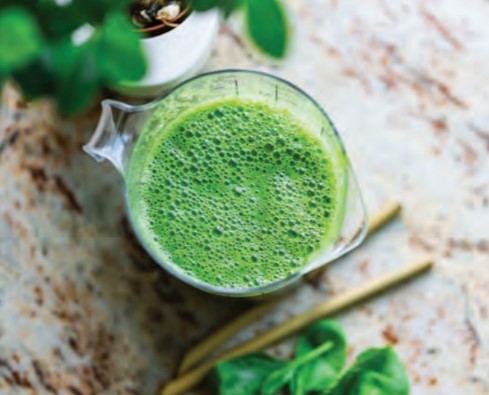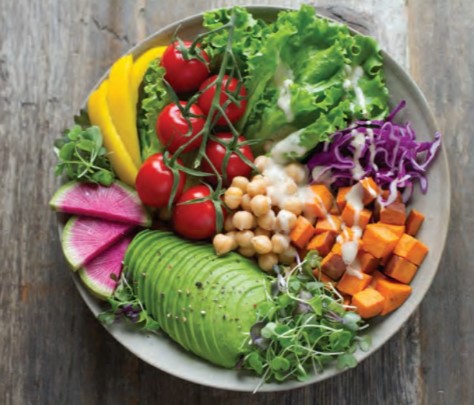You have likely heard all the talk about gut health. Maybe you thought: “I don’t have any problems with my stomach, so that doesn’t apply to me.”
But did you know that as the science around gut health has expanded, the health and diversity of your gut microbiota has been connected to your overall health?
An unhealthy gut has been linked to a range of chronic illnesses, from Crohn’s disease and inflammatory bowel disease to diabetes, cardiovascular disease, colorectal cancer, obesity and even depression.
Dr. Katherine Birchenough of OptimalSelf MD in Greenville is a gut health expert. She was one of the first doctors in the state to become certified in functional medicine, which looks at the full picture of a person’s health and his or her lifestyle to help identify and address the root cause of diseases.
“Gut health is at the root of a lot of other health issues,” she said. “Impaired gut health – and impaired digestion – is the root of many disorders like autoimmune disease, fibromyalgia, IBS and more. A lot of it starts in the gut.”
In her younger patients, those in their 20s and 30s, Dr. Birch enough said lifestyle issues often contribute to the problem. Patients with symptoms of abdominal discomfort may have a diagnosis of irritable bowel syndrome. But what she finds after extensive testing is that they have stress-induced small intestinal bacterial overgrowth.
Factors such as working too much, not sleeping enough, drinking too much alcohol and not eating healthy have disrupted their microbiome to the point where they have overgrowth of bacteria which has caused inflammation, migraine headaches, rosacea and other health issues.
Among older patients, those in their mid-40s and 50s, Dr. Birchenough said she sees different gut health issues, some related to aging. Those patients have begun to react to foods they may have eaten all their lives. They may be experiencing indigestion, nausea, bloating and brain fog, or they might feel tired and achy. The reasons can be hormonal. As our hormones decline, that can impair digestion and make our immune system more reactive.
Also, our stomach acid production declines as we age, so we don’t digest our food as well, and that partially digested food ends up irritating our gut.
Another factor is environmental. Over the years, we have been exposed to pesticides and herbicides in our food supply and the accumulation of those toxins in our bodies can kill off healthy gut bacteria and trigger an immune response in our gut that disrupts homeostasis.
So while your pain might not be in your gut, it most definitely can be related to your gut and to the food you eat.
“There are a lot of people walking around with these symptoms that they don’t realize are due to food sensitivities and gut issues because they might not have stomach pain,” Dr. Birchenough explained. “They might have other health problems outside of their intestinal tract that they don’t connect with the food they’re eating,” she said.
When a patient comes to her with what she suspects might be gut health issues, she performs a battery of tests, including one for food sensitivities, a stool analysis and a breath test to look for that small intestinal bacterial overgrowth. She then advises patients to begin an elimination diet to help determine what foods are triggering their health problems.
She suggests removing gluten, cow dairy, eggs and sugar – including honey, maple syrup and artificial sugars but not stevia – for one month. At the same time, they are encouraged to take a good quality, high-potency probiotic, along with a gut-healing supplement.
In addition to knowing your body and knowing what to eat, the key to a healthy gut also is in knowing when not to eat. You need to give your gut a break overnight.
“Give your gut at least 12 hours to do its thing,” said Dr. Birchenough. “There’s something called the migrating motor complex that happens overnight, and, if you don’t give yourself enough of a break between dinner and breakfast, that’s going to be a problem.”
Maintaining a healthy gut is an ongoing process.
EATING FOR A HEALTHY GUT
Smoothies can be great for gut healing, but beware of fruits with a high sugar content, which will turn your healthy beverage into a sugar bomb, Dr. Birchenough said. To avoid that, pack it full of vegetables and low glycemic fruit such as berries.

GREEN SMOOTHIE
• 1 cup nondairy milk (coconut, almond, oat, cashew or any non-cow milk)
• ½ cup frozen broccoli or spinach
• ½ cup either blueberries or strawberries
• 1 or 2 tbsp almond butter
• A dash of cinnamon
The great thing about smoothies is you can easily alter them to use whatever fruit or vegetables you have on hand. You can also substitute fresh greens for frozen, or frozen fruit for fresh. Mix it up and create your favorite version.

CHICKPEA BOWL WITH GINGER TAHINI DRESSING
Chickpea, sweet potato and avocado bowl with ginger tahini dressing:
- 1 cup fresh greens (lettuce, spinach, baby kale or mixed greens)
- ½ cup chickpeas, drained and rinsed
- 1 avocado, sliced
- ½ cup cooked chopped sweet potato (prepackaged is fine)
- 1 sliced watermelon radish or other radish
- Other vegetables as desired, depending what you have on hand
HEALTHY GUT SUPERFOODS
To keep your gut healthy and working properly, make sure you include both probiotic and prebiotic foods – known as good bacteria – in your diet.
Here’s a short list of some gut healthy foods:
- Probiotics: Fermented foods, including low or no sugar yogurt, kefir, sauerkraut (refrigerated), miso, pickles, kimchi, tempeh and kombucha.
- Prebiotic foods: Bananas, asparagus, garlic, leeks, artichokes, chickpeas, apples, blueberries, walnuts, cashews, almonds, oats and flaxseeds.
By Christine Steele
